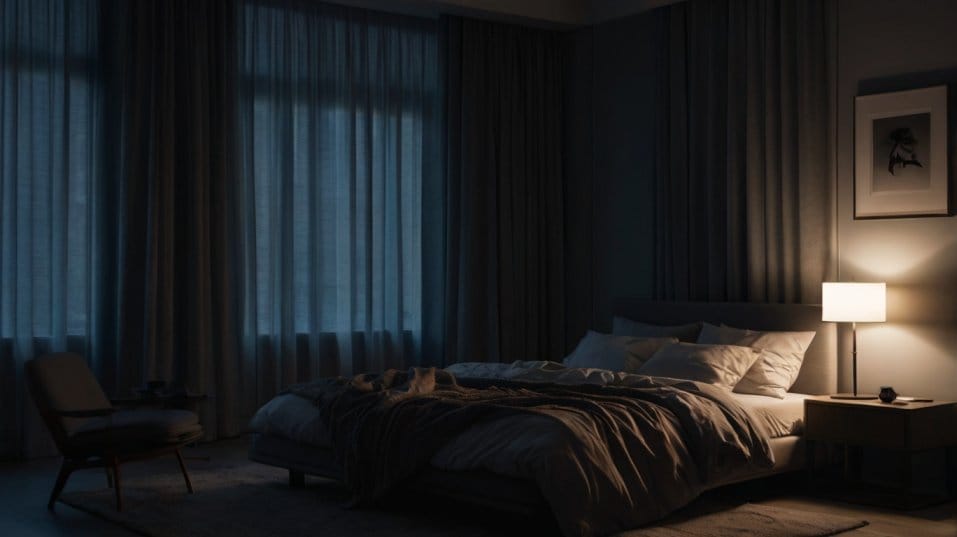Why Even One Night of Bad Sleep Affects Energy Levels
One night of poor sleep can wreck your energy and focus. Learn the science behind it—and simple, powerful ways to bounce back fast.

Ever wonder why you're dragging after just one bad night of sleep—even if you technically “got” your eight hours? It’s not just in your head. Your energy, clarity, and drive take a hit fast when quality sleep slips.
One off night throws your system into scramble mode, making everything harder the next day. The good news? You can bounce back quickly. Here’s how to take back control and feel like yourself again—starting tonight.
Sleep Isn’t Just Rest—It’s Repair
Sleep is when your body does its real work. While you’re unconscious, systems fire up behind the scenes to repair muscle tissue, flush out brain waste, regulate hormones, and rebuild cellular energy (ATP).
Miss even one good night of that, and you're showing up to the day underpowered. The science is clear: during deep sleep, your brain consolidates memory and resets attention. Your pituitary gland releases growth hormone.
Your nervous system balances cortisol and adrenaline. Without enough deep or REM sleep, you lose that reboot. You feel slower, less resilient, and more reactive—even if you “got” eight hours of poor-quality rest.
The real kicker? Sleep deprivation doesn’t just hurt your energy. It warps your perception of how tired you are. You think you're fine. But your body knows better.

The Silent Crash of a Single Off Night
Even one night of disrupted sleep tanks physical and mental performance. Your blood pressure rises. Inflammation ticks up. Blood sugar control falters. Your brain shifts into survival mode—conserving energy instead of optimizing it.
That “wired but tired” feeling? It's your body pumping out stress hormones like cortisol to keep you alert, while your mental clarity and emotional bandwidth crumble.
You’re more likely to reach for quick sugar fixes, miss details, snap at coworkers, and skip workouts—not because you’re lazy, but because your system is out of sync.
This isn’t about fear—it’s about leverage. Knowing how much sleep influences your energy gives you power. You can turn things around quickly, if you know where to start.
Why Most People Sleep Poorly Without Realizing It
You might think you’re sleeping okay. You go to bed at a decent time. You log enough hours. But how you sleep matters more than how long. Fragmented, shallow, or late-phase dominant sleep doesn’t give your body what it needs.
The Hidden Sleep Saboteurs
Common culprits? Light exposure at night, unpredictable sleep/wake times, eating too close to bedtime, drinking alcohol or caffeine too late in the day, and overstimulating your brain right before sleep.
Even seemingly minor habits like doomscrolling in bed or falling asleep with the TV on can delay your natural melatonin release, pushing back your sleep onset and shortening the deepest phases of sleep.
You don’t just feel “a little off” the next day—you operate at a fraction of your real potential.
The Fastest Way to Reclaim Energy: Protect Your Sleep Window
If you want stable energy without relying on caffeine or willpower, you need to treat your sleep like it matters. Because it really does. Here's how to get started without flipping your life upside down:
Lock in your wake-up time
This is non-negotiable. Your body’s circadian rhythm anchors itself to morning light.
Waking up at the same time every day—even weekends—strengthens that rhythm fast. When your body knows what to expect, it starts prepping for sleep earlier, without effort.
Shut down the noise—digital and mental
Blue light from phones, tablets, and TVs delays melatonin. Set a hard stop on screens 45 minutes before bed. Instead, read, stretch, or journal. Not for self-care points—just to let your nervous system come down.
Cool your sleep environment
Your core body temp needs to drop for quality sleep to kick in. Set your thermostat between 60–67°F, keep your room dark, and use blackout curtains if needed.
Want a faster wind-down? Take a warm shower about 90 minutes before bed. As your body cools afterward, it triggers sleep onset more naturally.
Don’t lie in bed awake
This trains your brain to associate your bed with frustration. If you’re not asleep within 20 minutes, get up, keep lights low, and do something quiet until you feel drowsy. Then return to bed.
Balance your evenings
Avoid big meals or intense workouts right before bed. Cut off caffeine 8–10 hours before you want to sleep. Alcohol might make you feel sleepy, but it fragments sleep and blocks REM—so skip the nightcap.
Real Energy Is Earned, Not Stimulated
The energy you want—the kind that helps you think clearly, move easily, and stay calm under pressure—doesn’t come from hacks. It’s built overnight.
You don’t need perfect sleep every night, but you do need consistency. Because one good night sets you up. And the next night? It builds on that.
Once your sleep starts supporting your energy instead of draining it, everything gets easier. Motivation clicks into place. Focus sharpens.
Your workouts feel better, and your recovery speeds up. You handle stress like someone who’s got capacity—not someone who's barely hanging on.
This is the most accessible, zero-cost upgrade you can make to your health and productivity. No pills. No gimmicks. Just science-backed consistency.
Final Thoughts
You don’t have to overhaul your life. But you do need to respect your sleep. One off night affects your energy more than most people realize—but one solid night can shift everything back in your favor.
Choose one improvement today. Set your wake-up time. Cut screens earlier. Cool your room. It doesn’t have to be dramatic—just deliberate.
Start now. Because once you feel what real energy feels like, you won’t want to go back.




